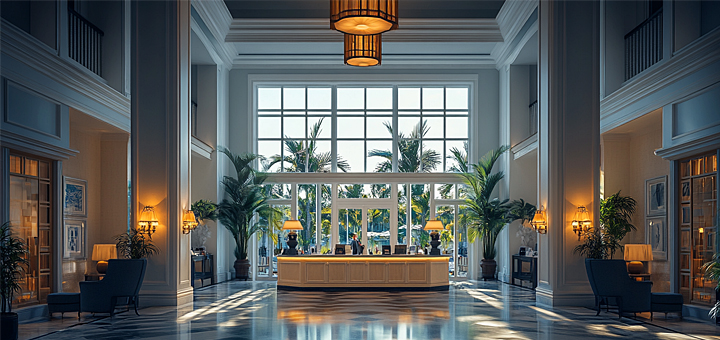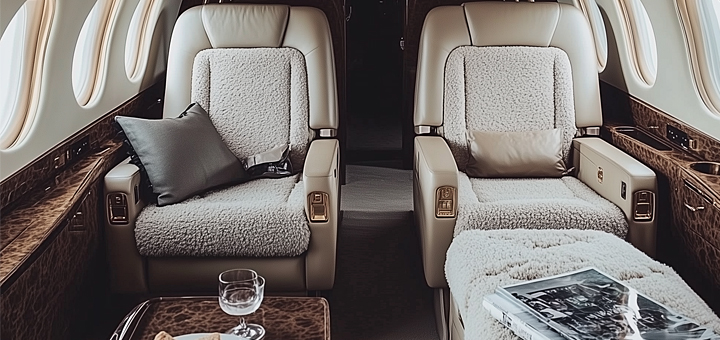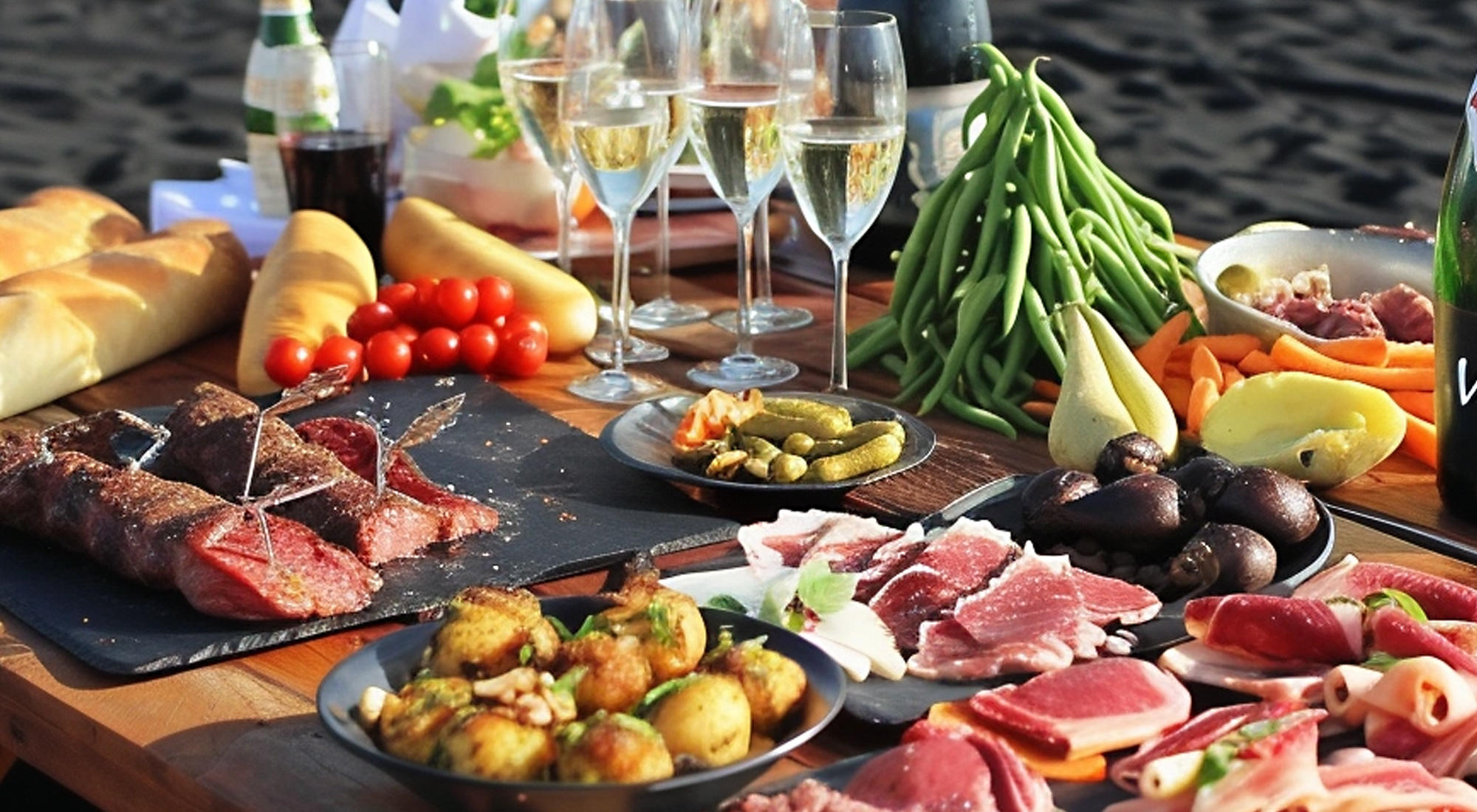In the ever-evolving world of hospitality, 2025 is proving to be a pivotal year for luxury hotels catering to VIP clientele. No longer satisfied with conventional five-star standards, today’s high-net-worth travelers expect hyper-personalization, tech-driven convenience, and immersive experiences that feel genuinely one-of-a-kind.
Across the globe, hotels are pushing boundaries—both in terms of service delivery and guest engagement. From biometric room access and AI-curated dining to private art viewings and sustainability-centric suites, the bar for VIP treatment has risen well beyond complimentary champagne and corner suites.
This article explores the latest trends and innovations shaping the VIP guest experience in 2025, drawing insights from industry leaders, market analysts, and real-world examples of properties redefining luxury hospitality.
The Shift from Luxury to Ultra-Personalization
VIP guests no longer measure value strictly in opulence—they crave individuality. That shift has prompted a new paradigm: ultra-personalized experiences crafted from data-driven insights and genuine human interaction.
Predictive Personalization Through AI
AI technology has reached a level of refinement where it can anticipate a VIP guest’s needs before they even articulate them. Top-tier hotels now deploy machine learning to analyze past bookings, spa treatments, dining preferences, and even social media behavior to shape every element of a guest’s stay.
For example, The Peninsula Hotels have adopted AI concierge systems that suggest activities, room amenities, and even personalized itineraries based on prior visit data—offering seamless, intuitive service without sacrificing the human touch.
Biometric Preferences On File
Forward-thinking properties like Zoku Amsterdam are experimenting with biometric recognition to eliminate the friction from check-in, room access, and security. Imagine walking into your suite without presenting an ID, card, or key—because your iris scan or facial profile opens the door and activates pre-selected room settings automatically.
“Ultra-luxury in 2025 isn’t about grandeur, it’s about being seen and understood as an individual,” says Julia Altman, VP of Guest Experience at Leading Hotels of the World.
Curated, Cultural, and Bespoke: Experiences that Go Beyond the Hotel Walls
VIP guests in 2025 want authenticity. Hotels are stepping up as cultural gatekeepers, not just providers of beds and bathtubs. The most compelling properties curate off-the-itinerary experiences that provide intimate access to the local soul.
Private Access to Museums and Historic Sites
Some hotels now offer exclusive after-hours tours to prestigious landmarks, often led by expert historians or local artisans. The Four Seasons Florence recently introduced a “Night at the Museum” package, allowing VIP guests to explore the Uffizi Gallery privately, guided by the museum’s chief curator.
Gastronomic Pilgrimages
Hotels are collaborating with Michelin-starred chefs and local food experts to take VIPs on culinary adventures. Whether it’s hunting truffles in Tuscany or sampling underground sake in Kyoto, gastronomic storytelling is being redefined as a luxury differentiator.
Relais & Châteaux properties, known for their deep connection to culinary arts, are now offering itineraries that link food, heritage, and hyper-local terroir in once-in-a-lifetime formats.
Technology Meets Tranquility: Wellness, Reimagined
Luxury wellness in 2025 transcends massages and yoga mats. It’s a fusion of cutting-edge science, ancient rituals, and bio-personalization.
Genomics-Based Wellness Programs
High-end hotels have partnered with biotech firms to offer DNA-based wellness protocols. Upon arrival (or even pre-stay), guests can submit saliva samples for genomic testing. Based on this, they receive customized meal plans, spa treatments, and fitness regimens that align with their biological needs.
The SHA Wellness Clinic in Spain has been a pioneer in this space, integrating genomic diagnostics with luxury hospitality to offer deeply personal health optimization packages.
Mental Health and Biofeedback Suites
Wellness-focused properties like Six Senses have embraced mental health as a new frontier in VIP service. Biofeedback tools—such as wearable EEGs and heart rate variability monitors—are now embedded into select suites. Guests can monitor their stress levels, sleep quality, and neural activity in real time, receiving AI-generated insights and in-room meditative guidance.
Sustainability as a Status Symbol
Green has become the new gold for affluent travelers. VIPs in 2025 are hyper-aware of their environmental impact and increasingly seek out properties that reflect their values.
Net-Zero Suites
Properties like the 1 Hotel Toronto have debuted carbon-negative suites that merge sustainability with sensuality. Think reclaimed wood furnishings, filtered air systems, and real-time energy dashboards—wrapped in gorgeous, minimalist aesthetics.
These efforts aren’t just about reducing footprint—they serve as status signals. Booking a suite with a zero-waste minibar or vertical garden shower isn’t just ethical, it’s on-trend.
Philanthropic Luxury
Another rising trend is “impact-inclusive luxury.” Hotels are partnering with local NGOs to offer guests curated volunteering opportunities or donation-matching programs tied to the length of their stay. The Ritz-Carlton’s “Give Back Getaways” program has expanded in 2025 to include education, marine conservation, and indigenous craft preservation projects.
VIP Services Powered by Human-AI Collaboration
Contrary to fears of robotic hospitality, the future is firmly hybrid. VIP guests expect high-touch service—but enhanced, not replaced, by technology.
Virtual Butlers and Smart Rooms
High-end brands like Aman Resorts and Rosewood Hotels now feature in-room “digital concierges”—AI assistants trained specifically in luxury guest needs. These aren’t off-the-shelf Alexa devices. They’re customized for each property, able to remember guest preferences, manage lighting and temperature, arrange transport, and even facilitate personal shopping experiences with affiliated brands.
But the tech never overshadows human connection. Staff are trained to use AI insights to deliver anticipatory, emotionally intelligent service—like remembering a guest’s pet’s name or preferred nightcap.
Security and Privacy: Invisible Yet Imperative
For VIP guests—particularly celebrities, diplomats, and executives—security isn’t optional. But the 2025 model of luxury ensures this layer is both powerful and invisible.
Digital Privacy
Blockchain-based guest profiles are being adopted by chains like Mandarin Oriental, allowing travelers to share personal preferences securely across properties without central databases. This reduces the need for repetitive form-filling while safeguarding privacy.
Physical Security Without Disruption
Luxury hotels are working with ex-intelligence professionals to offer low-visibility security. Think: plainclothes detail, AI-based surveillance systems, and discreet VIP-only access points that blend into the property’s architecture.
Exclusive Membership Tiers and Invite-Only Experiences
In 2025, loyalty programs are being reinvented to reward not just spend—but exclusivity, engagement, and brand alignment.
Invite-Only Luxury Tiers
Marriott International recently unveiled its Celestial Club—a members-only tier beyond Bonvoy Elite, offering invite-only access to private island properties, encrypted communication channels, and first rights to limited-edition travel experiences.
Luxury NFTs and Tokenized Travel
Some brands have begun using blockchain technology to create limited-edition digital passports or NFTs that unlock exclusive benefits. These may include early access to sold-out events, artwork commissions, or reserved bookings at in-demand restaurants.
Final Thoughts: The Future of VIP Hospitality Is Intimate, Intelligent, and Immersive
The VIP guest of 2025 is a digital native with analog desires: they want ultra-convenient, tech-enhanced journeys—but ones that are rooted in human touch and emotional resonance. They want exclusivity, not just access. Meaning, not just luxury.
For hotels, the mandate is clear. To stay relevant and revered, they must continue transforming from service providers into lifestyle curators—delivering not just memorable moments, but meaningful ones.










